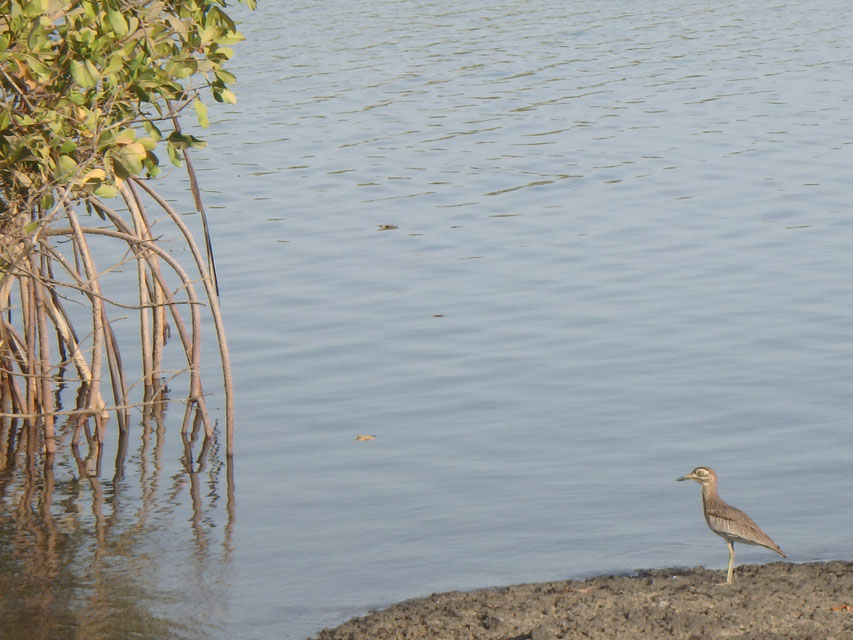
Staying there for nearly a week in the end, I have struggled to put my experience of Tumani Tenda into a digestible format. As is so often the case, the atmosphere was made by the wonderful staff, so I am trying to do them justice.
For learning about life in a Gambian village, about sustainable farming or for bird watching, it's hard to imagine a more ideal set up. The prices are listed upon arrival, so there is no need to haggle and activities are very affordable coming from Europe. Most importantly, any profit made is channelled straight back into the community.
The following information is enough for the basis of a thesis, so I have broken it up into sections. You might just want to look at the photos...
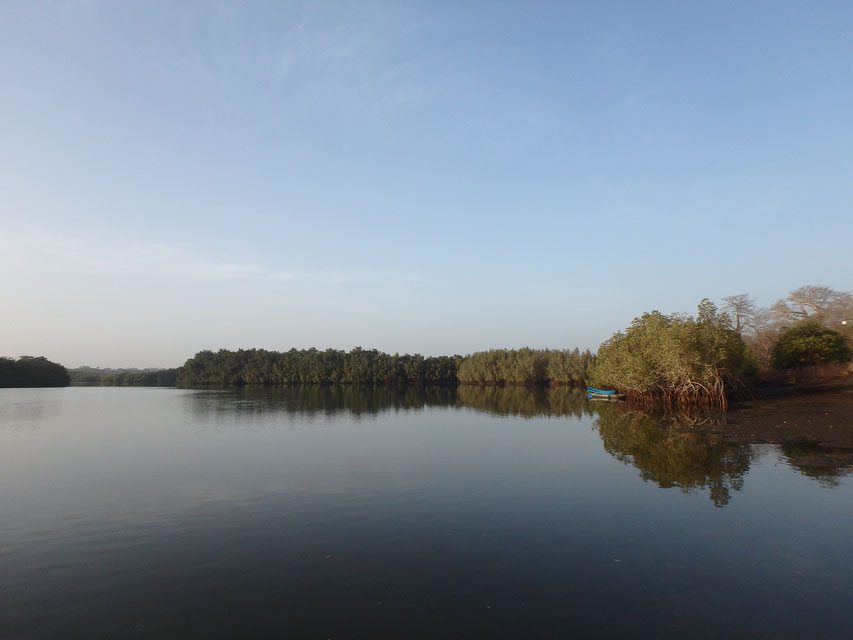
A Short History
Constructed from word of mouth and memory (mine) - please email me with any errors.
- Tumani Tenda is on the banks of the Kafuta Bolong, a tributary of the River Gambia.
- The name comes from Tumani (a peanut picker/trader who lived on the site before) and Tenda which just means river bank.
- In 1970/1971 the current settlement was formed by founder Osman. Chimps and monkeys made farming nearly impossible for the initial settlers. Eventually, they bought a gun to defend themselves.
- As the village and farm were established, the community began to see the importance of the natural environment and decided it needed protecting. Saving around fifty-five hectares for the village and farmland, they set aside around ninety hectares for indigenous forest.
- Around twenty years ago they were awarded seven-thousand dollars to invest into their community project. Having witnessed tourists coming on river trips to see them dancing and drumming with no reward to the village, they decided to set up an eco-camp.
- Youths from the village were sent out to learn about tourism. On their travels they met a Norwegian called Helga, experienced in the tourism industry, who agreed to help advise them in setting up the camp.
- The villagers worked together to build the huts within two months. They used traditional methods - earth and water bricks, cemented together with earth and water and coated with lime. The huts were then plastered with mud and small amount of cement.
- At this point they were told that the money was not allocated for such a project. They still had no mattresses, doors, electricity or tin for the roofs in the huts.
- Initially, the set up was extremely basic for tourists - straw mattresses and one kerosene lamp shared between all the huts which had to be kept in middle and returned after use.
- The youths were sent to Helga's lodge in Lamin as labour in exchange for money to finish the construction.
- They applied for a grant and received a very limited supply of cement. This they used to build the toilet and shower block.
- Tourists came and it was a success!
- The last few years of occasional political unrest and Ebola scares almost entirely stopped tourism (there were only five guests one year). Ebola was never actually in the Gambia.
- Recently, the community received a grant from the Chinese to plant thousands of trees and install solar for the tourist huts plus solar street lighting in village.
- This year the tourists are finally coming back.
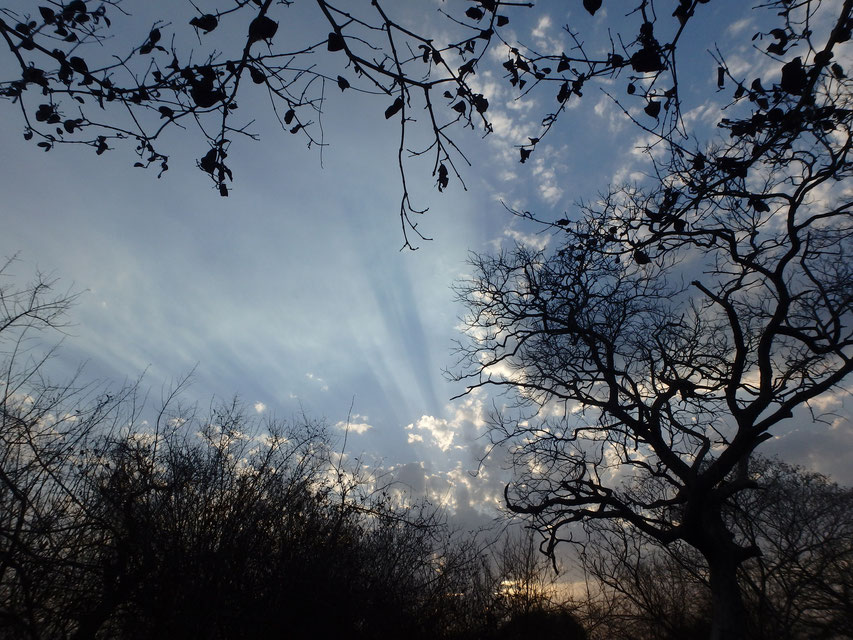
Staying in the Eco-Camp
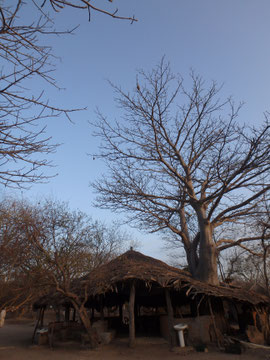
There are very few places set up for tourists which are as peaceful as Tumani Tenda. Quiet apart from the birds, the carefully spaced roundhouses and open air restaurant, built around a baobab tree, overlook the river.
In total there is enough space for around 30 guests. The rooms are simple, but clean and practical. Ours (one of two which made up the round house) had a sensibly designed mosquito net, windows with insect netting, a solar powered light bulb and somehow, the cleanest, whitest sheets we have ever had. Outside there is more solar powered (daytime) electricity to charge phones.
The toilets and showers are shared, but clean. A curtain indicates whether they are occupied or not; if you are nervous about an intrusion, leaving your shoes by the entrance should put your mind at rest.
There are currently no fans in the rooms, but it is planned for the future. It is good to bear in mind that tourists have more luxurious accommodation than people living in the village. The staff will do everything they can to make you comfortable.
Although you will not be asked to do so, please respect people's beliefs and dress conservatively in loose clothing which covers your knees and preferably shoulders. This should also protect you from the sun.
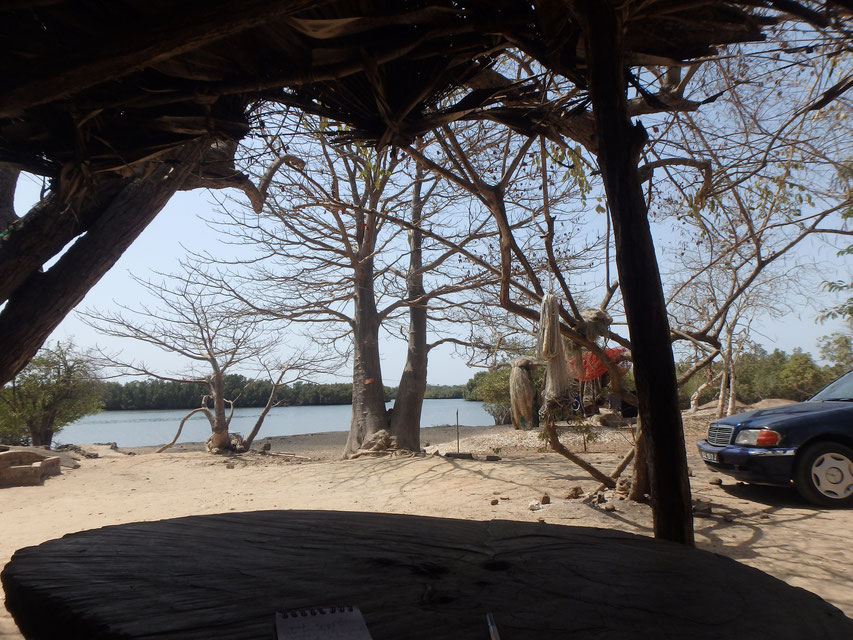
Often people brought their children to work. This was my favourite part...
Boat trips and bird watching
Knowing a little about birds in the UK and a little more about canoeing*, I was excited to get on the water. These dug-out mahogany boats take two men a couple of months to carve and
Basiru can identify the vast majority of species in the area.
*My parents met at Poole Harbour Canoe Club, so I did some of my growing up there.
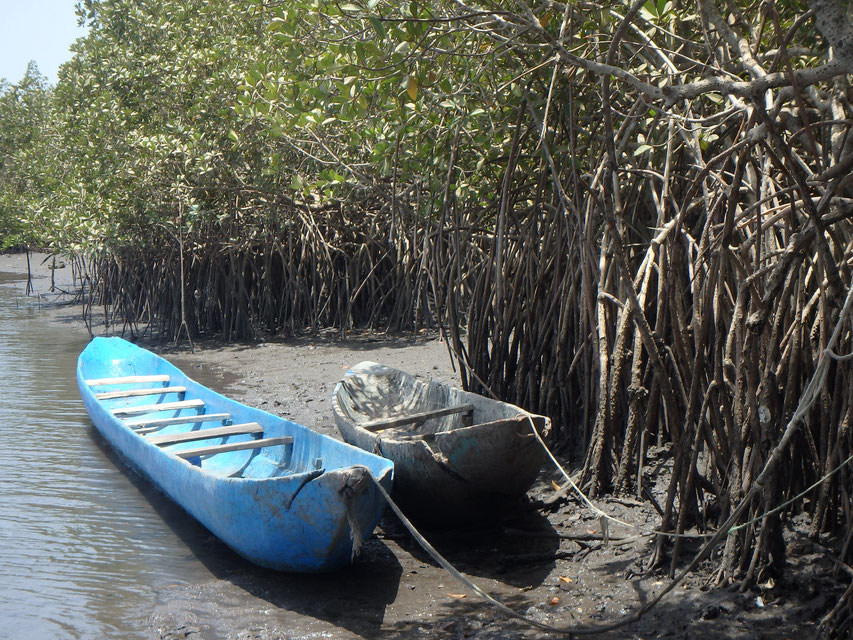
As I do not have a fancy camera with me, it has been quite a challenge to photograph birds, but I will include a species list of those which we saw (and identified) for any enthusiastic bird watchers amongst you:
- African fish eagle
- Osprey
- Black kite
- Hooded vulture
- Pink backed pelican
- Purple heron
- Intermediate white egret
- Black Egret
- African darter
- Long tailed cormorant
- Pied kingfisher
- Blue breasted kingfisher
- Brown necked parrot
- Senegalese parrot
- Western red-billed hornbill
- African grey hornbill
- Green bee fly catchers
- Blue calling bird
- Yellow crown conoel
- White fronted black chat
- Pied crow
- Purple glossy starling
- Blue roller
- Red bill fire finches
- Barberry shrike
- Black wood hoopoe
- Wimbrel
- Common sandpiper
- Laughing dove
- Namaqua dove
- Stone partridge
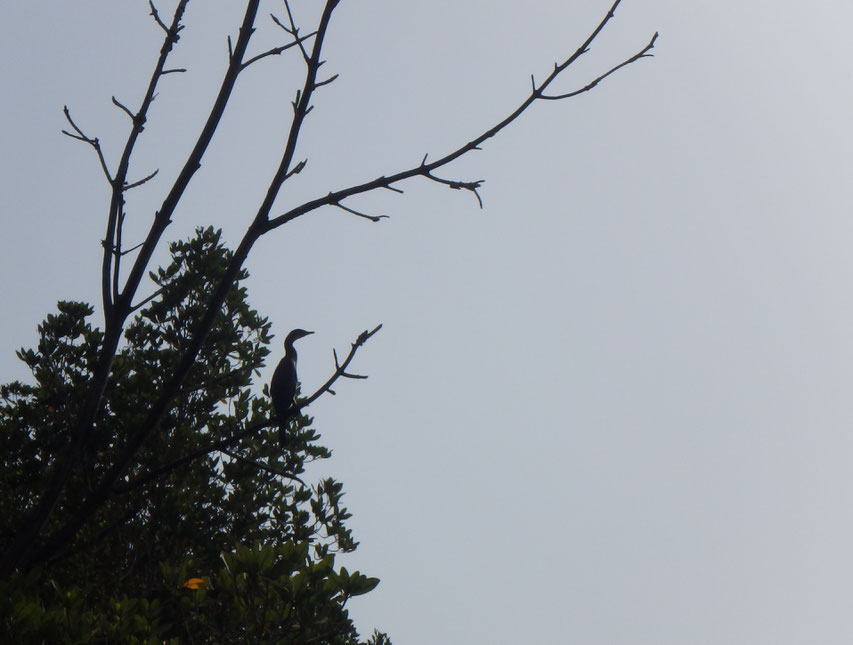
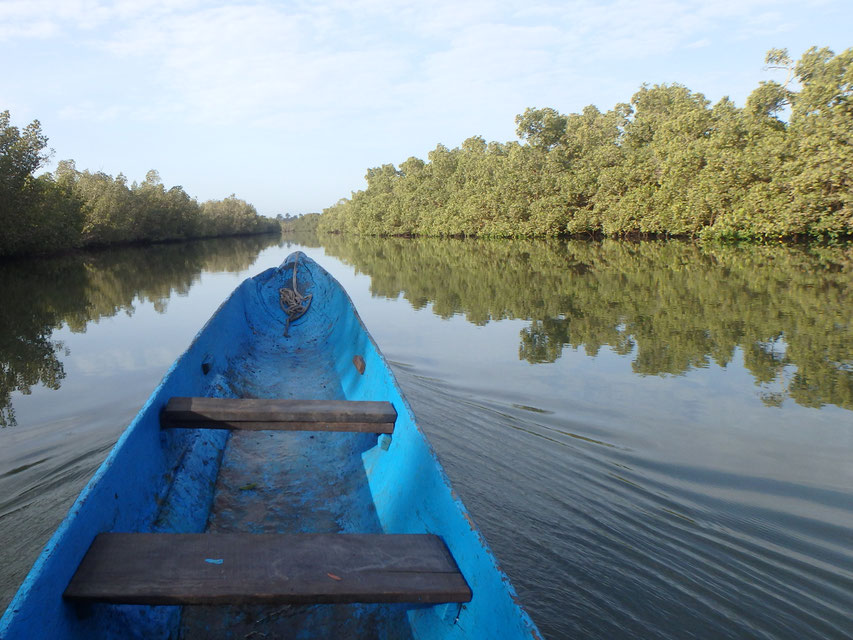
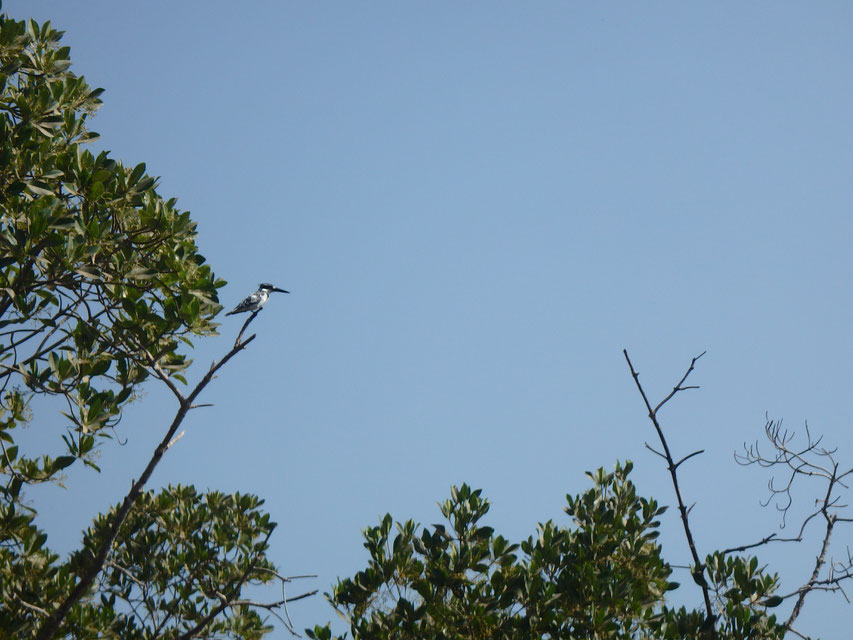
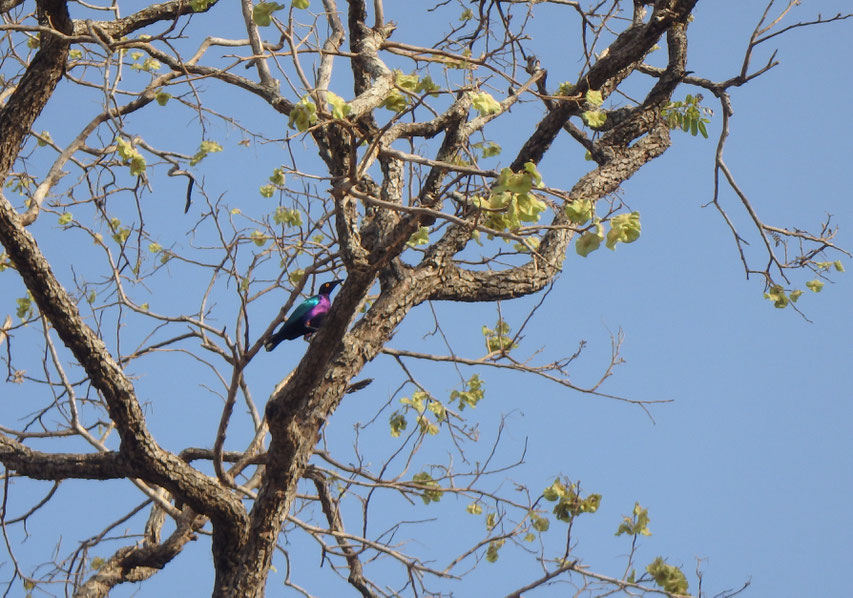
Two almost successful "selfies" from the times we went out in the canoe.
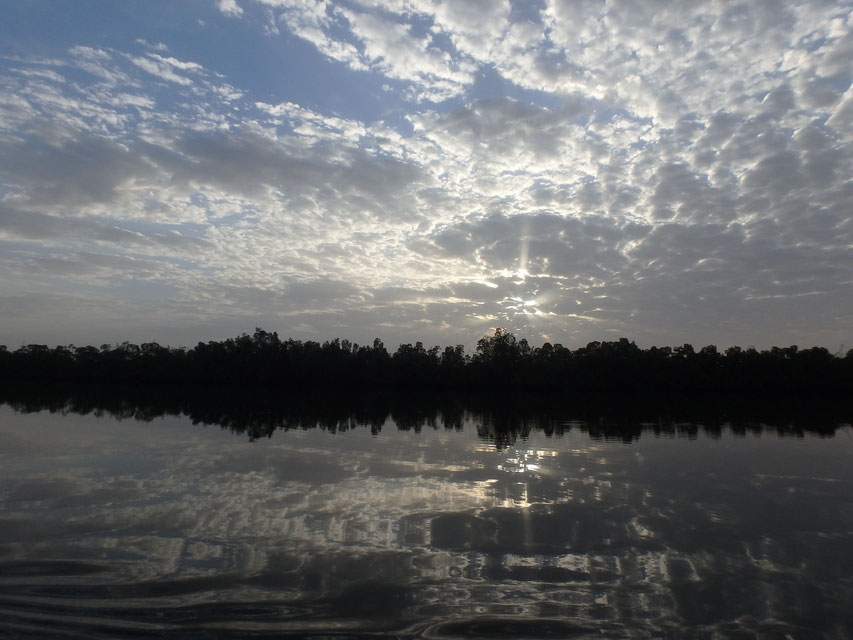

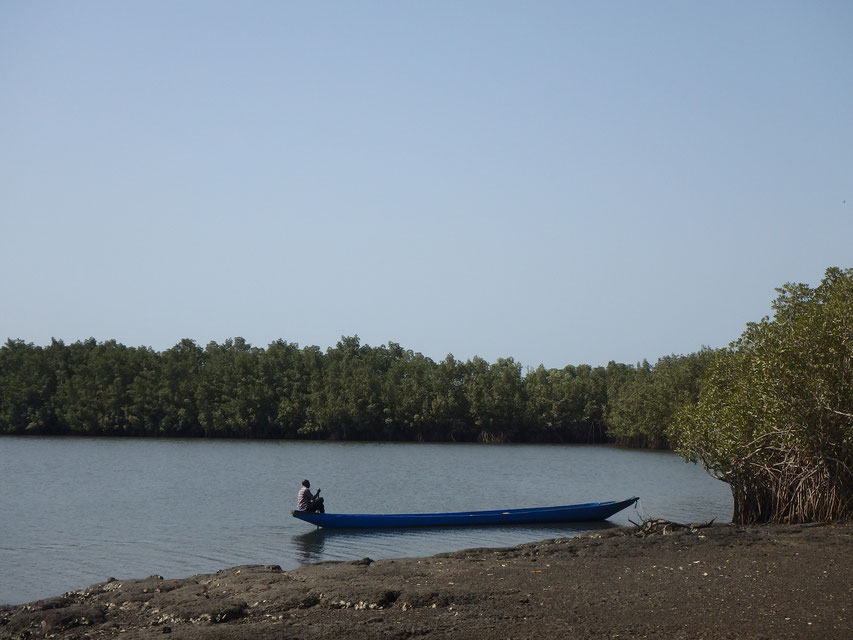
The Village and Community Garden
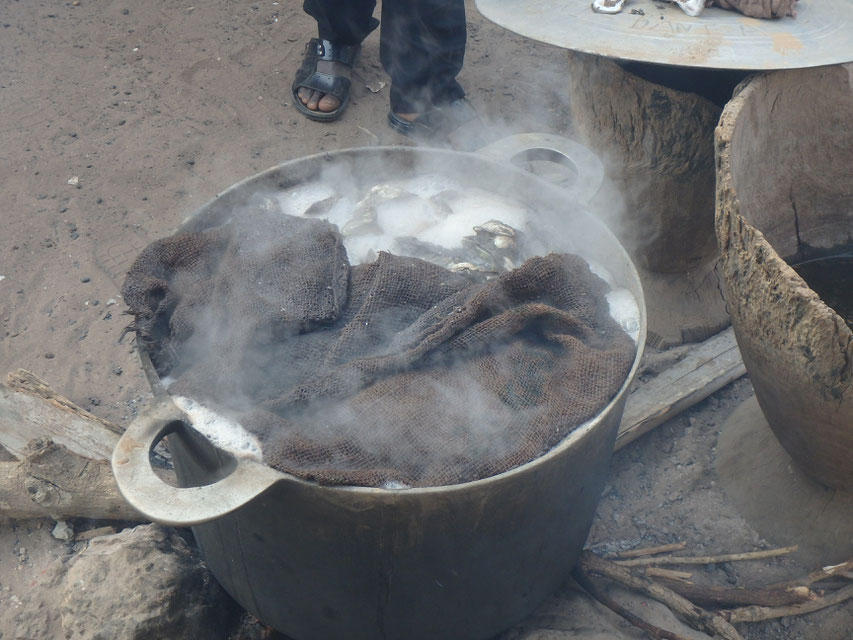

The Tumani Tenda community consists of around four hundred and twenty people from seven families who live across forty "compounds" - thirty seven of these are of the Muslim Jola tribe, but three are Christian Manjangos. The school now teaches around three hundred children from the surrounding villages up until grade nine.
The community is aiming for long term sustainability - they run an area of community farmland along with the vegetable garden, fruit and medicinal trees, also having a few cows, goats, chickens and other animals.
Staff at the camp are pleased to organise a tour and this is the best way to learn a little about the community's way of life. We did this with some other tourists staying at the camp, but were dismayed at the way they were taking photos of people without asking. Apparently this is alright in Tumani Tenda, the village have decided that it is a good way to spread the word and encourage more guests, but I didn't want to treat the children as exhibits. Dan put on some entertainment to give them something to watch instead.
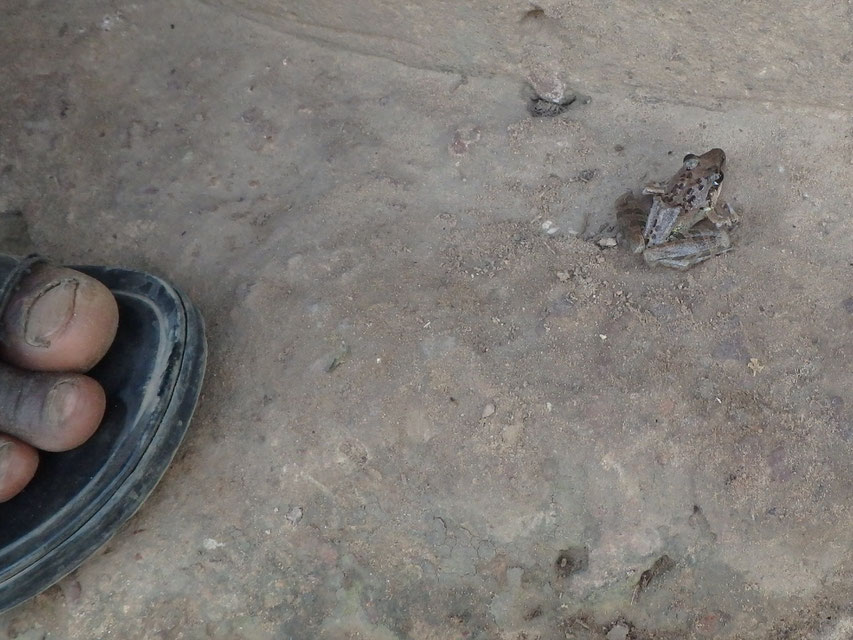
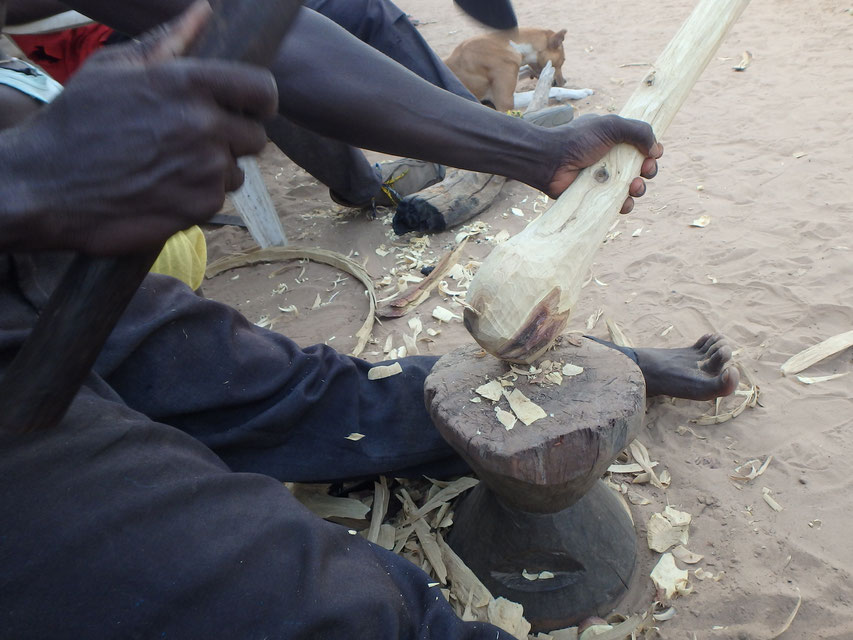
Mixed planting is used in the garden and crops are rotated to keep the soil healthy. The dry season supplies chilli peppers, tomatoes, onions, cabbage, aubergine and lettuce; the cashews start around April and bounties of mangoes come between May and July. Once the rain starts in June, the village can grow plentiful watermelons, more aubergine and bitter tomatoes.
In the dry season, watering the plants from a well is heavy, hot and time consuming, demanding the daily efforts of many women, some men and the older children.
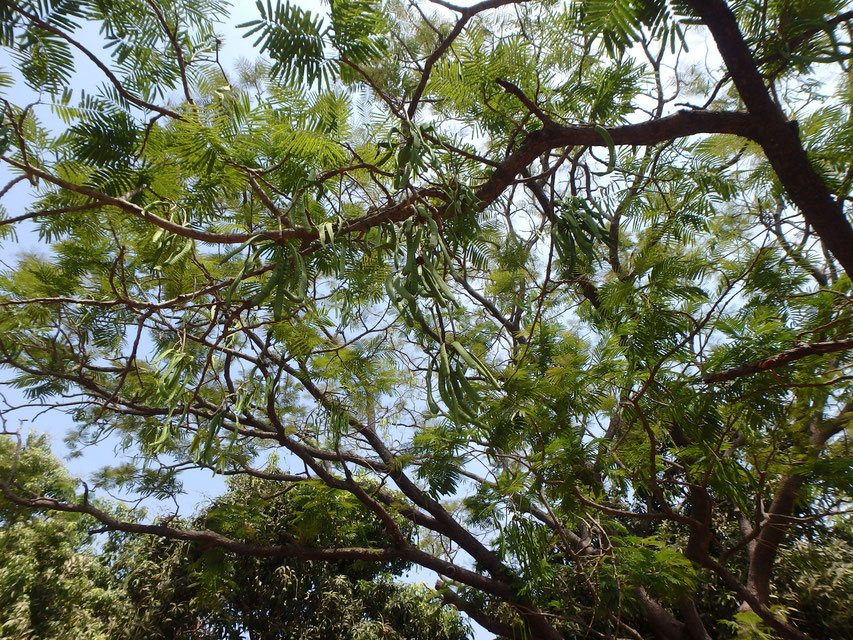
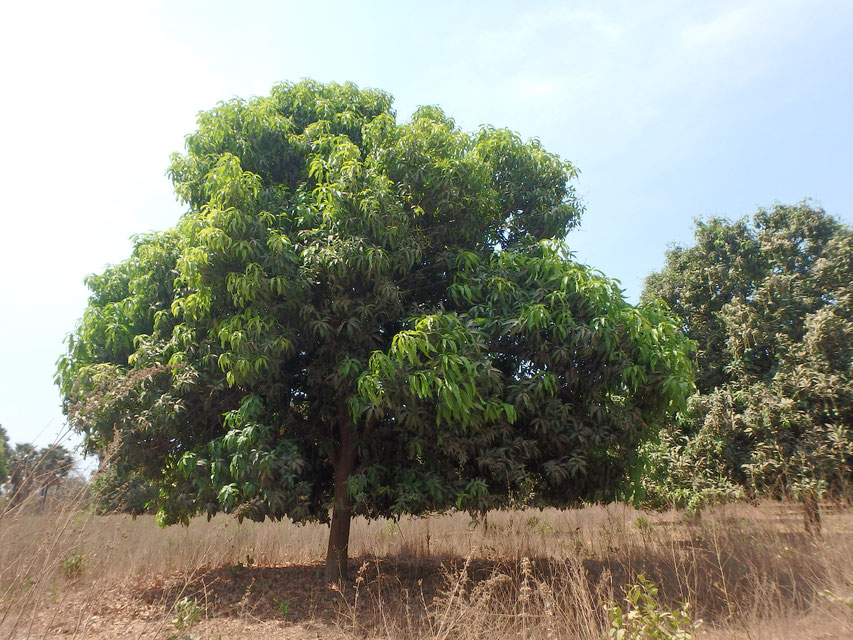
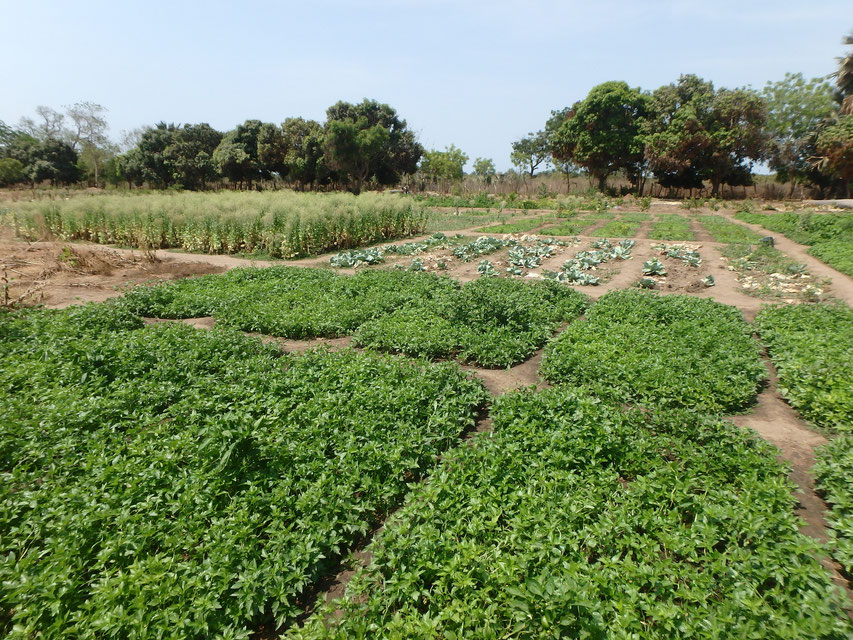
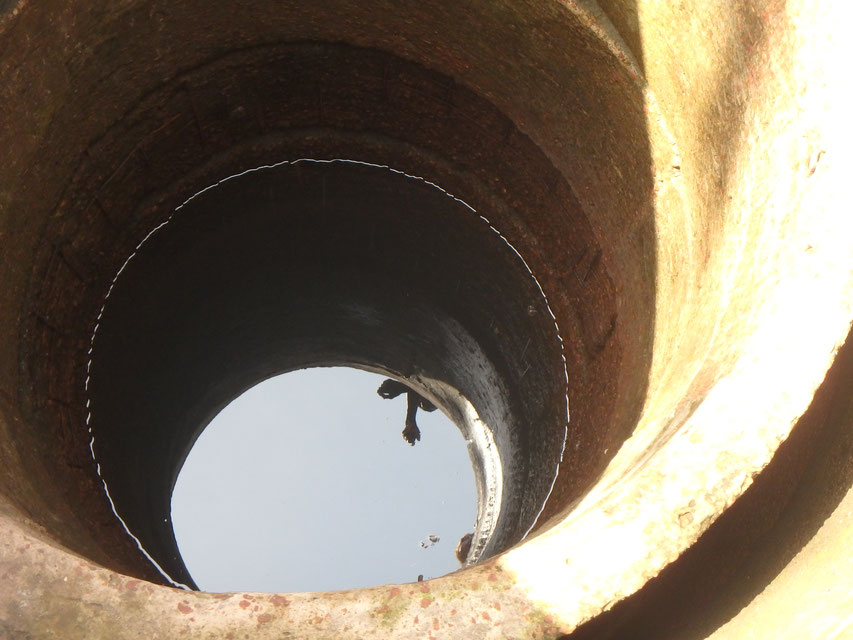

Cooking Lesson
Before we came, I had few expectations of Gambian food, but I've been pleasantly surprised at the use of spicy chillies and general variety of flavours. Dan was keen to do a cooking lesson, so we joined the women preparing dinner for everyone one evening.
At 75 D each (around £1.15), with the meal taking several hours to prepare, you would be hard pushed to find a better value cooking lesson anywhere in the world.
Although we don't have such a sizeable pestle and mortar, I'm eager too try making their caramelised onion sauce at home.
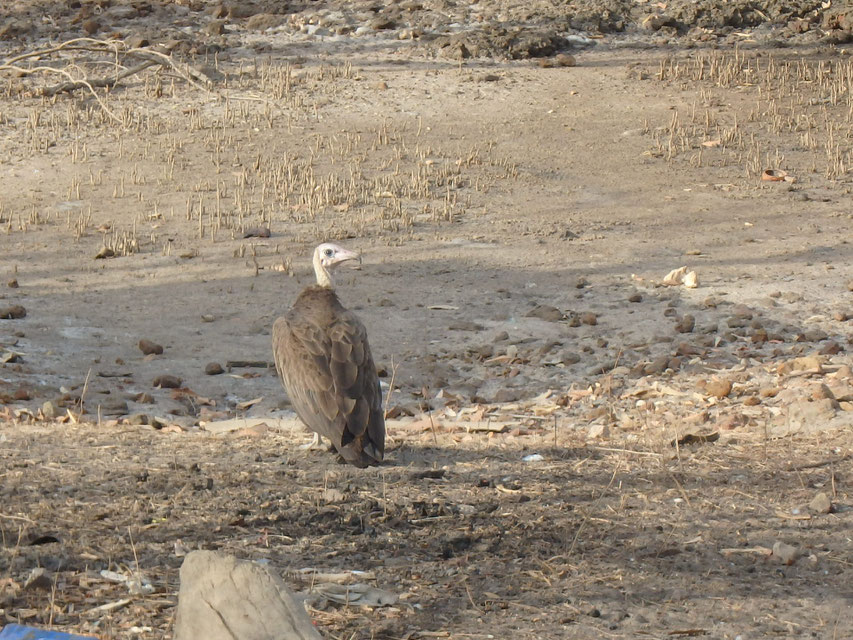

Music and Dancing
We would never have arranged a "cultural performance" for ourselves, but as there was a bigger group, we joined. Participation is encouraged, which I would usually hate, but with even tiny children (not to mention a troop of middle-aged Dutch ladies) jumping about, it was hard to be embarrassed. The drumming and dancing can get phenomenally energetic, but it is acceptable to linger as part of the clapping perimeter in these moments.
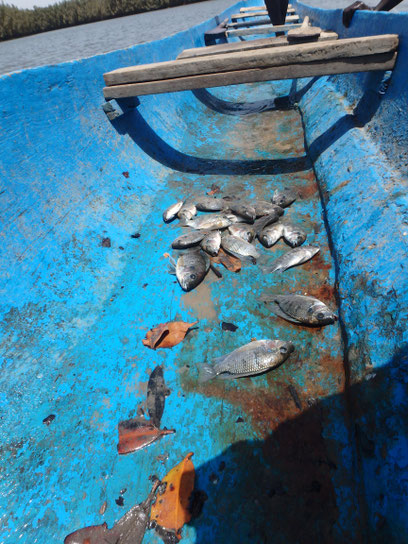
Fishing
Rich in fish, the river appears to be unpolluted and supports both the wildlife and proximate villages with variety and protein.
Mosa makes his own nets (the current one having taken three months to complete) and repairs the holes made by rocks daily. This, along with the method of fishing itself, is a complicated skill and an important asset to the community. Though the knowledge is shared, life in Tumani Tenda is rich in specialities.
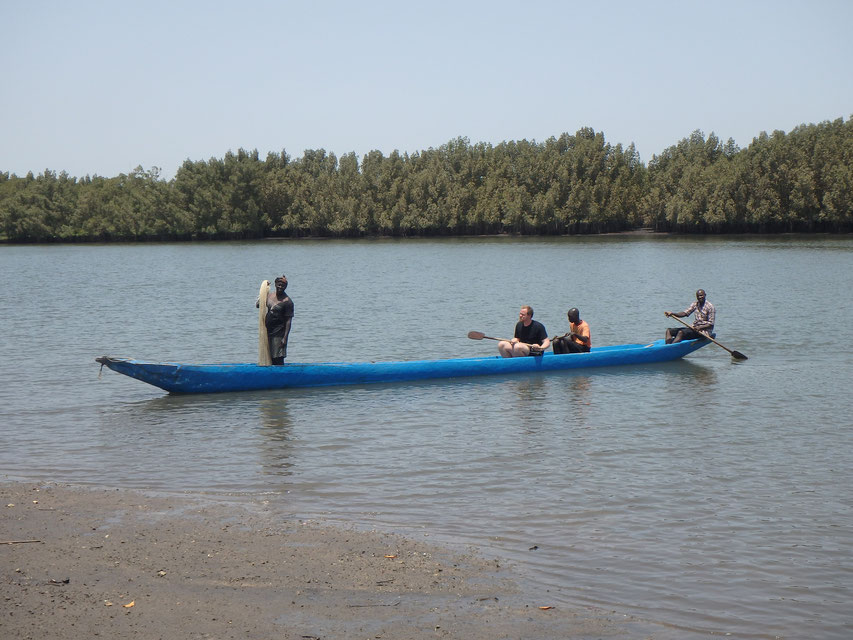
Making Soap
Sido has introduced bee-keeping, the honey being a secondary product to the benefit of fruit from pollination. Now, with wax and honey, Musu and her colleagues have a recipe for soap. She sells the bars in the village, but hopes to expand to a bigger business in the future.
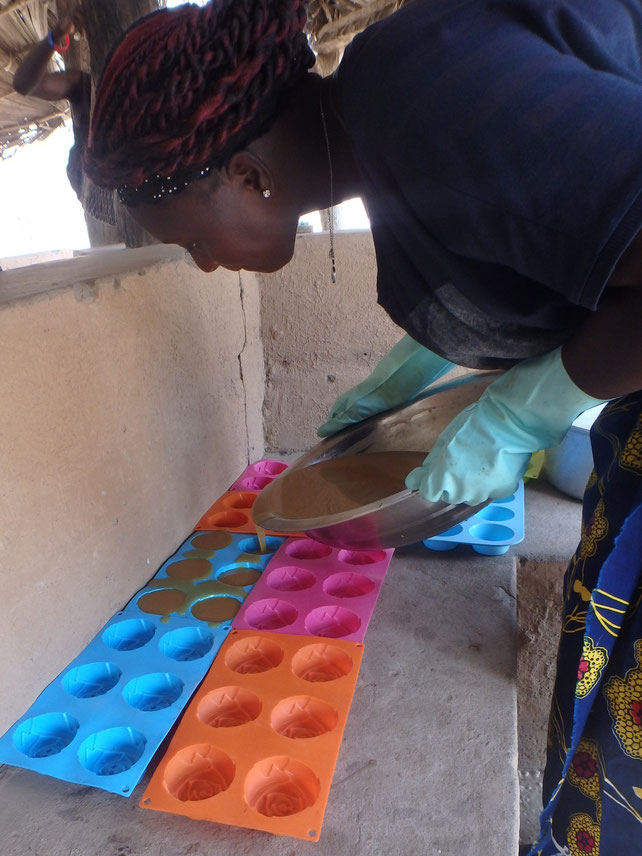

Building and the Community Forest
Traditional building methods are supplemented with harder wearing additions where possible; corrugated iron doesn't have to be replaced annually after the destruction of termites; cement is better for bathroom floors, but often prohibitively expensive. Hard wood is used sparingly and only as quickly as it can be regrown for future generations.
This forest is protected by the community, but elsewhere Gambia is being gutted for export.
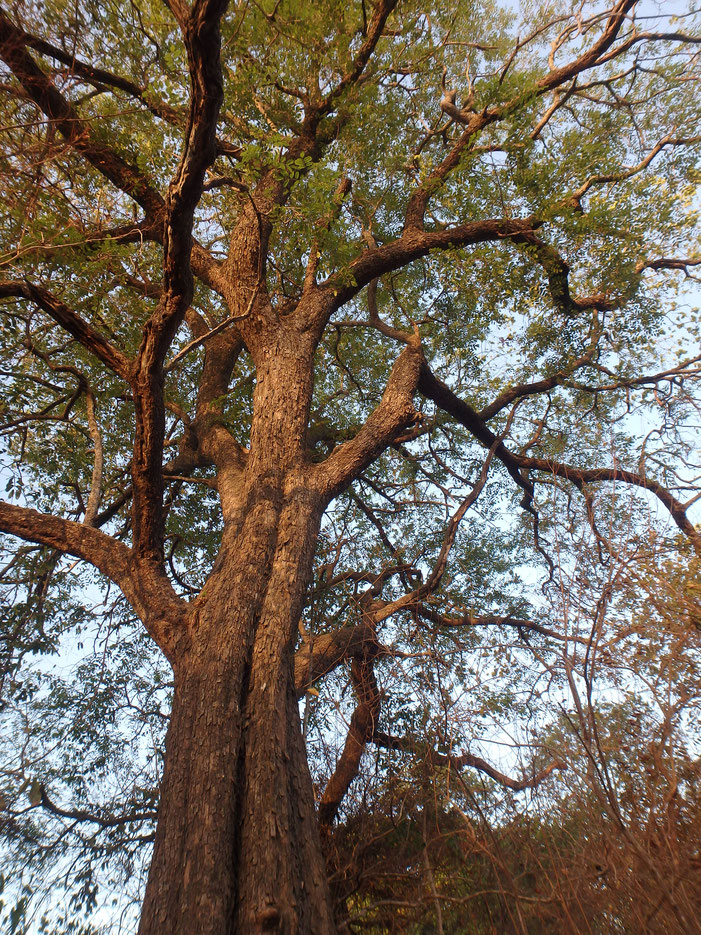
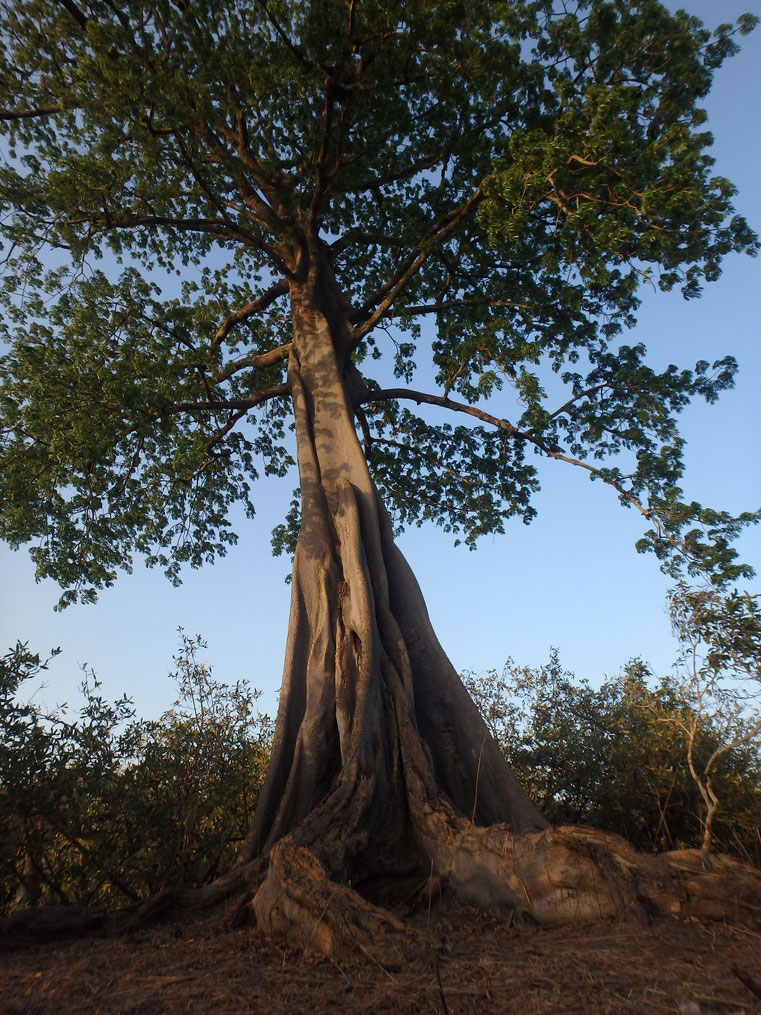


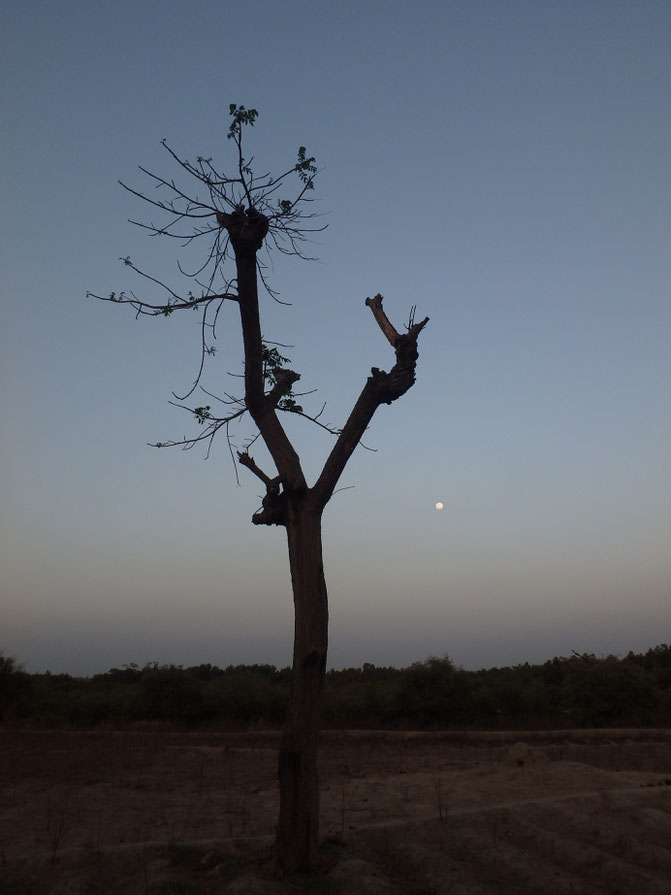
Packing for The Gambia
In retrospect, I've written a whole post about what to pack and how to prepare before your trip to The Gambia.
Contact/Bookings
We just turned up, but it would probably be more polite to call in advance.
Email - tumanitenda@hotmail.com (please allow some time to reply as they do not yet have wifi in the village or at the camp)
Phone
- 00 220 9903662 - Basiru
- 00 220 9840308
- 00 220 9997033
- 00 220 7915080 - Basiru
Address
Tumani Tenda Village
Kombo East District
Western Region
The Gambia
Website - http://www.tumanitenda.co.uk (needs updating)
Price List - Accommodation, Food and Drinks (correct in April 2018):

One UK pound currently equals about 65 Gambian dalasi.
- Bed and Breakfast - 400 D
- Lunch/dinner - 250 D
- Camping + breakfast - 350 D
- Day trip (including lunch) - 350 D
- Beer - 60 D
- Soft drink - 40 D
- Drinking water (1.5 litres) - 50 D
- Tea/coffee - 15 D
Portion sizes at meal times are more than enough (even for hungry Dan-sized people). Dish up a conservative portion as you are welcome to go back for more.
Excursions, Lessons & Activities:

Prices are per person unless otherwise stated.
Village tour - 100 D
Garden tour - 100 D
Farm tour - 100 D
Visit to bee-keeping - 75 D
Forest tour - 100 D
Bird watching - 100 D
Boat trip - 200 D
Fishing lesson - 200 D
Oyster collecting - 200 D
Cooking lesson - 75 D
Tie dye - 50 D per meter self made
or 150 D per meter pre-made
Cultural performance - 1000 D per group
Soap making - not specified, we decided to pay 100 D per person.
Public Transport from Brikama
The gelly-gelly (minibus) from Brikama is 20 D (found at the far end of the main gelly-gelly station- we began by asking for Soma and then asked for Tumani Tenda when we were in the right area as Tumani Tenda not always very well known in Brikama).
Watch out for turning clearly marked to Tumani Tenda some time after Faraba Banta (2km before Kafuta if you are coming from the other way/miss the turning). Our gelly-gelly driver knew where to stop though.
Walk down track for 30 minutes or so, past the school on your left, into the centre of the village. You must take the track to the right, the last turning off from the village, but if you see people outside it is polite to greet them before asking directions (Salam malekum - "Peace be with you"or reply Malekum salam - "Peace returns to you"), shake hands if it seems appropriate and ask the persons name if they are able to speak English/you can communicate. Depending on who you are talking with that might be the extent of your verbal communication, but you can ask directions by pointing and your foreignness will make it very obvious where you are trying to go.
Once you have turned off onto the smaller track, it is a further five minutes walk through open land with large trees until you come to the camp and river. Make yourself known in the obvious and open restaurant area (again with polite greetings first) and there you will be told the whole story.














